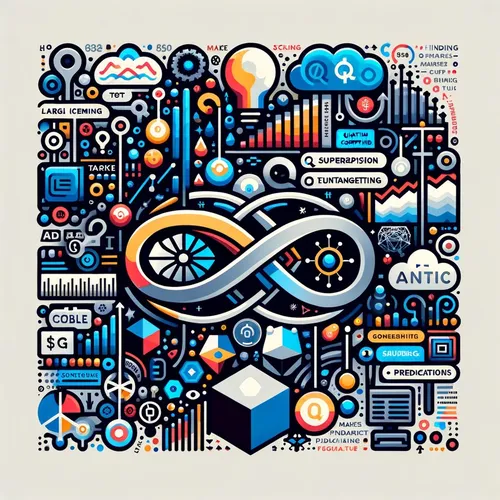Quantinuum's $10B Valuation: Fault-Tolerant Quantum Computing Unleashed
- Author
- Quiet. Please
- Published
- Fri 05 Sep 2025
- Episode Link
- https://www.spreaker.com/episode/quantinuum-s-10b-valuation-fault-tolerant-quantum-computing-unleashed--67646396
This is your Quantum Market Watch podcast.
Imagine stepping into a room that thrums with possibility—a lab where photons zig and qubits hum, where the air itself seems charged with anticipation. This is Leo, and today on Quantum Market Watch, I’m compelled to dive directly into the seismic shift that unfolded just yesterday—a breakthrough that isn’t just making waves in quantum circles but sending shockwaves through the tech industry’s future.
Let me tell you about the headline of the week: Honeywell has just announced a whopping $600 million capital raise for Quantinuum, the world’s highest-performing quantum computing company, at an astonishing $10 billion pre-money equity valuation. Quantinuum’s upcoming Helios system promises universal fault-tolerant computing—an evolution that’s been little more than theory, now racing toward reality. This isn’t hyperbole; this signals the dawn of quantum at scale. With new partners, global investment, and strategic collaborations with powerhouses like NVIDIA and JPMorganChase, the game has truly changed.
What does this mean for the technology sector, and how does it ripple into the wider world? Let me paint the picture with technical clarity. Fault tolerance in quantum computing—once as elusive as Schrödinger’s cat—is foundational for real-world applications. Think of qubits, the basic units of quantum information, as dancers balancing on a razor’s edge, threatened by every tick of thermal noise. Achieving fault tolerance transforms this fragile choreography into a persistent, robust performance. Quantinuum’s roadmap aims toward the launch of Helios, integrating advanced error correction and scaling up qubit counts, reflecting breakthroughs in superconducting circuits and trapped-ion techniques. Suddenly, tasks like cryptographic analysis, drug discovery, and financial portfolio optimization move from the fringes of feasibility into the thick of competition.
The dramatic flair comes from how quantum parallels life itself. Just as industries face uncertainty and complex variables, quantum computers harness uncertainty—the superposition of states—to make calculations classical systems can’t touch. I liken today’s announcements to unveiling a new telescope for the digital universe; every dollar of investment sharpens the focus, every new chip peels back layers of potential.
But the impact doesn’t end at market valuations. This quantum leap will affect cybersecurity—securing transactions with protocols that are unbreakable even as they outpace threats. Machine learning algorithms, infused with quantum insights, may detect market anomalies or pandemic patterns before they emerge. Consider the collaboration with NVIDIA: quantum computing fused with AI, a marriage of technologies that could define how data-intensive sectors operate for decades.
As quantum hardware companies like Quantinuum race toward fault tolerance, the resulting wave will wash across supply chains, logistics, and even climate modeling. The question becomes not if quantum will touch your life, but when—and how deeply.
Listeners, thank you for joining me on today’s journey through quantum’s frontier. If you have questions, or if there’s a quantum topic burning in your mind, send me a note at [email protected]. Subscribe to Quantum Market Watch for your next pulse on quantum breakthroughs. This has been a Quiet Please Production—for more, check out quietplease dot AI. Stay curious.
For more http://www.quietplease.ai
Get the best deals https://amzn.to/3ODvOta
